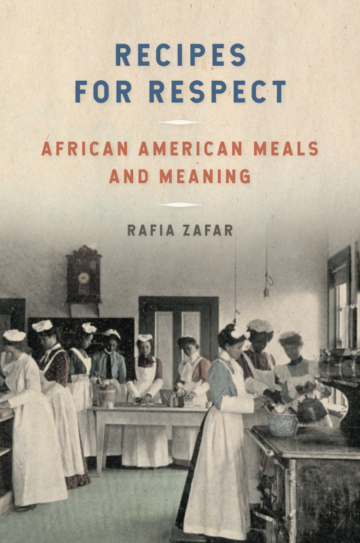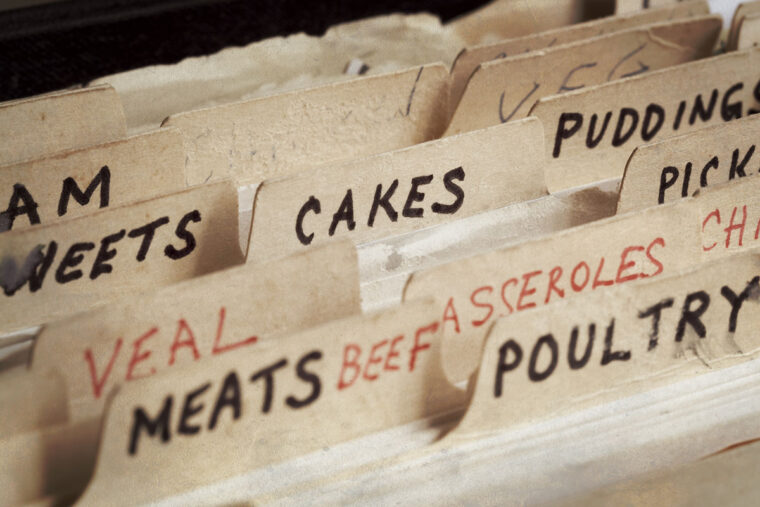If you read Gone With the Wind or Uncle Tom’s Cabin, popular but inaccurate depictions of life in the American South during slavery, you’ll see the stereotypical black cook, an unlettered woman full of folk wisdom “selflessly working for [her] white ‘owners,’” says Rafia Zafar, professor of English, American culture studies, and African and African American studies. “In reality, working conditions were frequently harsh and food rationed.”
Zafar points to the autobiography of Harriet Jacobs, a former slave who wrote that her mistress spat in the cooking pots after meals were dished out to the white family so that the black cook could not share the food with her family or other slaves.

Recipes for Respect
African American Meals and Meaning
Showing how black foodways* have intersected with American history was Zafar’s aim in creating her course and writing her recent book, Recipes for Respect: African American Meals and Meaning (University of Georgia Press, 2019). In the course and the book, Zafar looks at how African Americans have interacted with the farmed environment, domestic service and cookery to gain social mobility and civil rights.
“When is a cookbook more than a set of instructions?” she asks in the introduction to her book. “And how might a meal rewrite history?”
*Foodways is an anthropological term that means all of the “stuff” surrounding food, such as cooking, agriculture, restaurants, cookbooks, etc.
Five things you didn’t know about black foodways in America:
- Okra, sesame seed and watermelon were all brought to
the new world by Africans. - The National Council of Negro Women’s early community cookbooks contained recipes
and black history lessons. - In America, African cooking ingredients, if not styles, were incorporated into Anglo cuisine, but Native American foodways were also adopted and incorporated.
- In the late 19th century and early 20th century, George Washington Carver taught poor black farmers principles of organic farming and how to make their farms self-sufficient, so they wouldn’t have to buy from the company store, which indebted them to white landowners.
- The first hospitality book by a black person ever published was Robert Roberts, The House Servant’s Directory (1827). It was a domestic guide that included recipes and advice about how to run a house. Roberts ran the household for U.S. Sen. and Massachusetts Gov. Christopher Gore.
Recipes from What Mrs. Fisher Knows About Old Southern Cooking, Soups, Pickles, Preserves, Etc.
Published in 1881 by former slave and successful business owner Abby Fisher.
Old-Time Ginger Cake
One pint molasses, one quart flour, one-half teacup brown sugar, one teacup butter, one tablespoonful cinnamon, two tablespoonsful ginger, one teacup sour milk. With it mix a teaspoonful soda and three eggs. Cream butter and sugar together, then add molasses, then flour, then eggs, then milk, then ginger and cinnamon; stir thoroughly and put to bake in oblong pans.
Corn Egg Bread
Two eggs, one pint of meal, half pint of sour milk, one teaspoonful of soda — beat eggs very light — one tablespoonful of melted lard or butter, mix all together, well stirred or beaten. Bake in an ordinary pan.



